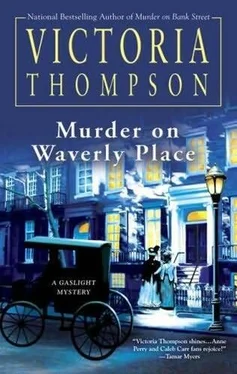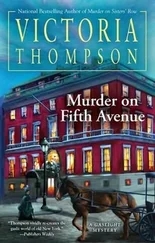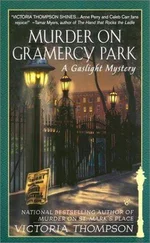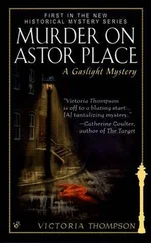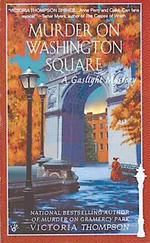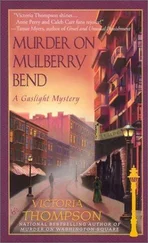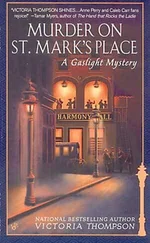“To convince them it’s good quality so they’ll buy it.”
“How much does counterfeit money cost?” Mrs. Decker asked with interest.
“Ten cents on the dollar. When the sucker is convinced, he pays for the money, and the operators lock it into a suitcase for him. Then the steerer escorts him right back to the train that will take him back home and puts him on it.”
“I do not understand,” Serafina said. “How does this make any money if they sell real money for less than it is worth?”
“Because when the sucker is distracted, the operators switch suitcases. When the sucker gets home and opens it, it’s full of sawdust or blank pieces of paper or bricks or something.”
“But don’t they go back to New York and complain that they were swindled?” Mrs. Decker asked, outraged.
This time Malloy couldn’t help smiling. “What would they say? That they were trying to buy counterfeit money and someone cheated them?”
The women all exclaimed their surprise.
“How clever!” Sarah said. “And you think this is what the Professor wanted to use the money for?”
“Yes, but they’d need at least ten thousand dollars in cash to show the suckers. The operators usually have somebody who gives them the money to show the suckers and takes about half the profits. The steerer and the Old Gentleman and their other helpers each get a share of the other half.”
“How much could someone earn doing this?” Sarah asked.
“At least a couple thousand dollars.”
“A year?” Mrs. Decker asked.
“No,” Malloy told her. “A day .”
The women gasped. A couple thousand dollars was a good annual wage for a working man.
“No wonder the Professor was trying to convince Mrs. Gittings to do it,” Sarah said.
“But Mrs. Gittings was afraid it was too dangerous,” Serafina reminded them.
“It is,” Malloy said. “Sometimes the suckers get suspicious, or they figure out what’s going on, and they pull a gun or the operators do. Sometimes people get shot.”
“So that explains what the Professor wanted the money for,” Sarah said.
“If I’m right about it, it does,” Malloy allowed. “But none of that matters now. What matters is if it gave him a reason to kill her, and I don’t think it did, at least not until they had enough to bankroll him for a Green Goods Game.”
“But they fight all the time,” Serafina insisted.
“Lots of people fight but never kill each other,” he told her. “Beside, they didn’t have enough money to set up his own game yet. When they did, he might have killed her if she refused to go along with him on their original plan. But that hadn’t happened, and he still needed her to keep running the séances.”
“Did he?” Sarah asked.
Malloy frowned. “Did he what?”
“Did he need her to run the séances?” She turned to Serafina. “Could you do the séances without her?”
“I don’t… Yes, we could,” she decided. “At first she got clients for me, but after a while, people began to bring their friends and… No, we did not need her anymore.”
“So the Professor could have killed her to make sure that she wasn’t around to mess up his plans,” Malloy said.
“Except,” Sarah reminded him with a superior grin, “he wasn’t even in the room when she was killed.”
THAT EVENING, LONG AFTER M ALLOY AND SAR AH’S mother had left and when Catherine had finally gone reluctantly to bed, Sarah and Serafina had to tell Maeve and Mrs. Ellsworth everything they had discussed earlier in the day. Serafina had chosen not to return to the house on Waverly Place that afternoon as the Professor had asked. Even though she had scheduled clients who might have appeared, she simply couldn’t stand the thought of going back into the room where Mrs. Gittings had died.
Mrs. Ellsworth asked dozens of questions during Sarah’s narrative as the four of them sat around Sarah’s kitchen table, but Maeve just listened quietly, her expression unreadable. She was especially attentive when Sarah was describing the Green Goods Game.
When Mrs. Ellsworth finally ran out of questions, Maeve spoke up at last. “What does this Professor look like?”
They all looked at her in surprise.
“He’s tall and very dignified,” Sarah said. “Like a butler in a fine house. Dark hair with some gray at the temples.”
“That is powder,” Serafina said.
“What is powder?” Sarah asked, confused.
“The gray in his hair. He thinks he looks more respectable with gray in his hair.”
“How odd,” Mrs. Ellsworth remarked. “Most people don’t want their hair to turn gray.”
“Why did you want to know what he looked like?” Sarah asked Maeve.
“No reason,” she said, although Sarah was sure she had a good one. “Are you and Mrs. Decker going to visit those people tomorrow?”
“We’re going to see Mrs. Burke first thing, but not Mr. Sharpe and Mr. Cunningham. After we thought about it, we couldn’t figure out any way it was proper for us to visit a widower and a bachelor.”
“Oh, my, that certainly wouldn’t be proper,” Mrs. Ellsworth agreed.
“How are you going to question them, then?” Maeve asked.
“Mr. Malloy is going to see them.”
“But I thought he couldn’t question them without risking his job,” Mrs. Ellsworth said.
“He’s going to pretend that he’s just trying to get more information to use against Nicola.”
“But what if they refuse to speak with him?” Mrs. Ellsworth asked.
Sarah sighed. “Then I guess we’ll have to figure out something else.”
“You could have another séance,” Maeve said, surprising them again.
“Another séance?” Sarah echoed.
“Yes,” Maeve said, leaning forward eagerly. “From what you said, they’ll both want to see Serafina again as soon as they can. They probably are both still very interested in their own plans for her. One of them might have killed Mrs. Gittings just so he could do that very thing! So why not give them the chance?”
“I could invite them for a private reading,” Serafina offered.
“I thought you didn’t want to go back to the house,” Sarah reminded her.
“Not for another séance, but I could do the reading in a different room,” the girl said bravely. “I want to help Mr. Malloy.”
“And Mother and I could be there to engage them in conversation,” Sarah said.
“We’re getting ahead of ourselves,” Mrs. Ellsworth said. “Perhaps Mr. Malloy will find out all he needs to know without our help.”
“Let’s hope so,” Sarah said fervently.
FRANK DECIDED TO CALL ON JOHN SHARPE FIRST. CUNNINGHAM didn’t strike him as the type to rise early. Sharpe lived in a tastefully large town house on a quiet, tree-lined street just off Park Avenue. A maid answered the door, a plump Irish girl with a plain face and a fancy starched apron who knew exactly what he was, and she didn’t want to let him inside. She acted like she was afraid he’d try to steal the silver or something.
“Just tell Mr. Sharpe that Detective Sergeant Frank Malloy is here. I need to give him some information about Madame Serafina.”
“I’m sure Mr. Sharpe don’t know no Madame anybody,” she sniffed.
“Just tell him what I said. I’ll wait,” he added, shouldering his way inside before she could slam the door in his face.
She gasped in outrage, but short of screaming for help, she had no option but to leave him standing in the entry hall while she went to announce his arrival.
Frank looked around while he waited. Somebody with good taste had chosen the furnishings. A lush carpet covered the floor and ran up the stairs. The wallpaper had fancy swirls in shades of brown, and several chairs that looked like they’d come from a castle sat against the wall, in case visitors got tired while they waited. Frank was admiring one of the large paintings of country scenes when he heard the maid hurrying back down the stairs.
Читать дальше
